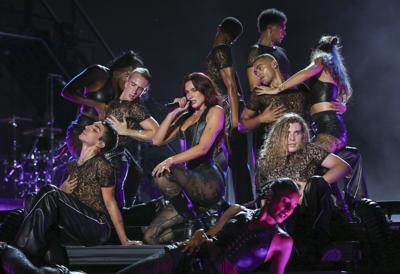Gen Z and social media have successfully manifested another word of the year as two of the world’s leading English dictionaries make their picks for 2024.
Last week, Cambridge Dictionary announced that , beating out “brat,” “ecotarian” and “resilience” for the top spot.
Meanwhile, there is a six-way race for Oxford’s pick for 2024 between “demure,” “brain rot,” “slop,” “romantasy,” “lore” and “dynamic pricing.”
Cambridge’s selection — a 600-year-old word that has historically meant “obvious” or “to show something clearly” — might come as a surprise to some, especially after Oxford picked “rizz,” an Internet slang term, as the word of 2023.
But thanks to Gen Z and celebrities like and , “manifest” has had a bit of a renaissance under a new definition.
According to Cambridge, “manifest” can mean to make something more likely to happen through repeated positive affirmation and mental visualization. Think: I’m manifesting that the Eglinton LRT will open in 2025.
Regardless of whether people actually believe manifesting is real — many Gen Zers use it ironically, while those in the self-help community consider it more seriously — Cambridge said “manifest” was picked after it was looked up almost 130,000 on its website, making it one of the most viewed words of 2024.
“Manifest won this year because it increased notably in lookups, its use widened greatly across all types of media, and it shows how the meanings of a word can change over time,” Wendalyn Nichols, publishing manager at Cambridge said of the selection.
While Oxford’s pick next week will be shaped in part by public opinion, many of the words on its shortlist were picked based on similar criteria to Cambridge, according to the dictionary’s website.
Almost all the words on the shortlist also have long etymological histories but have gained new popularity over the last year through social media.
The use of “demure,” for example, resurged over the summer thanks to on her “very demure, very mindful” work makeup. Similarly, “lore” has evolved over the past couple years to refer to anyone’s personal history.
Adrien Rannaud, a cultural studies professor in the language studies department at the University of º£½ÇÉçÇø¹ÙÍøMississauga, said the word of the year, like language in general, speaks to how people see the world and the past 12 months.
“Language is what we do with it. It is what the people do with it,” he argued, adding that he liked Oxford’s approach of asking the public to weigh in on the selection process.
This year’s picks, he said, also demonstrate how social media is influential in shaping language.
While he thinks “manifest” is a good pick from Cambridge, Rannaud said he would have picked “brat” — which was made famous by Charli XCX’s album of the same name and even  — as his word of the year. (Collins English Dictionary actually declared “brat” word of the year in early November.)
“Everyone knows it when I bring it up in class.”



























To join the conversation set a first and last name in your user profile.
Sign in or register for free to join the Conversation